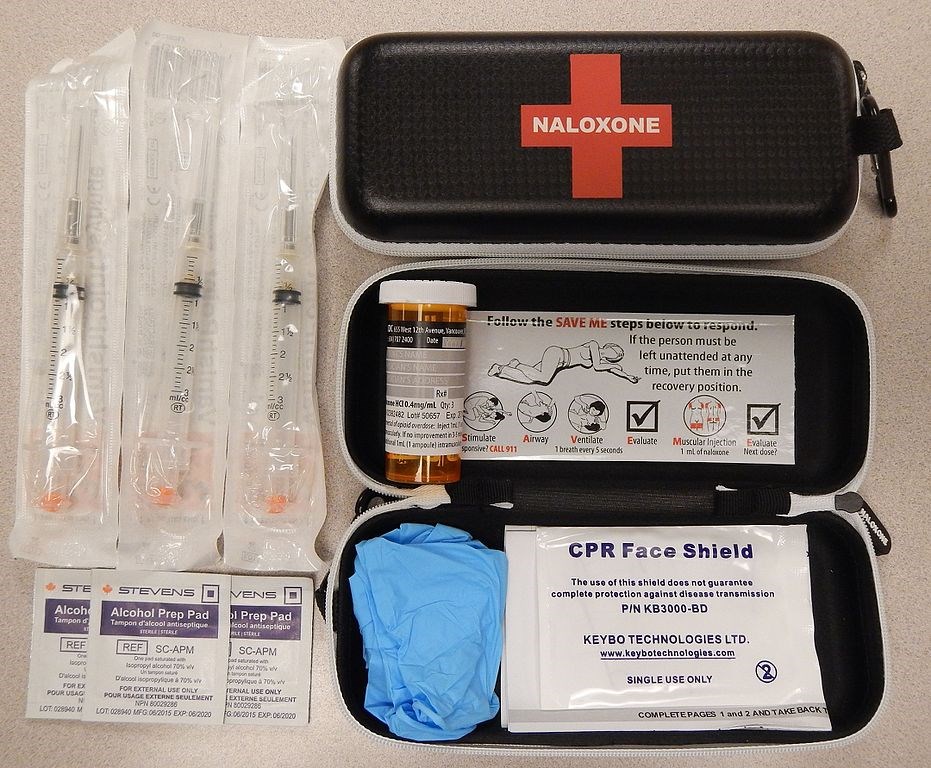More naloxone kits will be made readily available in the community and there will be an increase in the number of needle exchange bins spread around the city after Barrie council gave the go-ahead last night.
Councillors unanimously approved having more needle exchange bins within city parks and parking lots — in addition to containers already located in park washrooms — at a cost of up to $30,000 from the strategic priorities reserve, as well as $15,000 to fund nasal-spray naloxone kits as part of a one-year pilot inside city facilities near defibrillators.
The new measures are meant to address the overdose crisis in Barrie, which has one of the worst drug problems in the province.
Coun. Natalie Harris also provided a few tweaks to the plan with a trio of amendments to the original motion, all of which received approval Monday night.
Those include having the city host an opioid/substance abuse forum facilitated through the office of the mayor, similar to one recently held in Orillia, to keep the public up-to-date on the issues; requesting that Connected Core representatives join the Barrie chapter of the human services and justice co-ordination committee, which includes people who work in the justice system, from the courts to correctional centres; and that the Barrie Drug Awareness Partnership (BDAP) provide information about the use of crystal methamphetmine in the area, including any changes to local patterns.
"Most of the information we have around crystal methamphetamine in Barrie has been anecdotal at this time, but it is from very reliable sources," Harris said. "It's obviously great to be proactive instead of reactive, and make sure we know what is happening on the streets with respect to this and how we can prevent any type of crisis (with crystal meth)."
Connected Core, meanwhile, is a multi-layered pilot program brings together a variety of organizations devoted to improving the lives of people in the community by eliminating the stigma around drug use and co-ordinating existing resources.
"This would be another piece and thank you for thinking of the program, frankly, because I think it will be an opportunity for us to work on a long-standing issue in the downtown, which is post-discharge from correctional facilities," said Mayor Jeff Lehman.
Following last week's discussion at general committee, city councillors indicated they wanted to do more to support the Simcoe Muskoka Opioid Strategy (SMOS) and its various pillars, which include emergency management, harm reduction and treatment.
According to SMOS statistics, from January to June 2019, there have been 345 opioid poisoning emergency department visits at hospitals in Simcoe Muskoka, which was "substantially higher" than the 248 visits to Simcoe Muskoka hospitals during the same period in 2018. However, opioid-related ER visits in July to September were down compared to previous months in 2019 and were lower than July to September 2018.
Other measures the city is undertaking include completing a community safety and well-being plan to address the root causes of crime and complex social concerns no later than Jan. 1, 2021, as legislated by the province; promoting use of the Rapid Access Addiction Medicine (RAAM) clinic and withdrawal management services at Royal Victoria Regional Health Centre (RVH); hosting a career fair specific to the field of mental health and addictions; and continuing to offer naloxone training to downtown businesses through the Connected Core pilot project.



